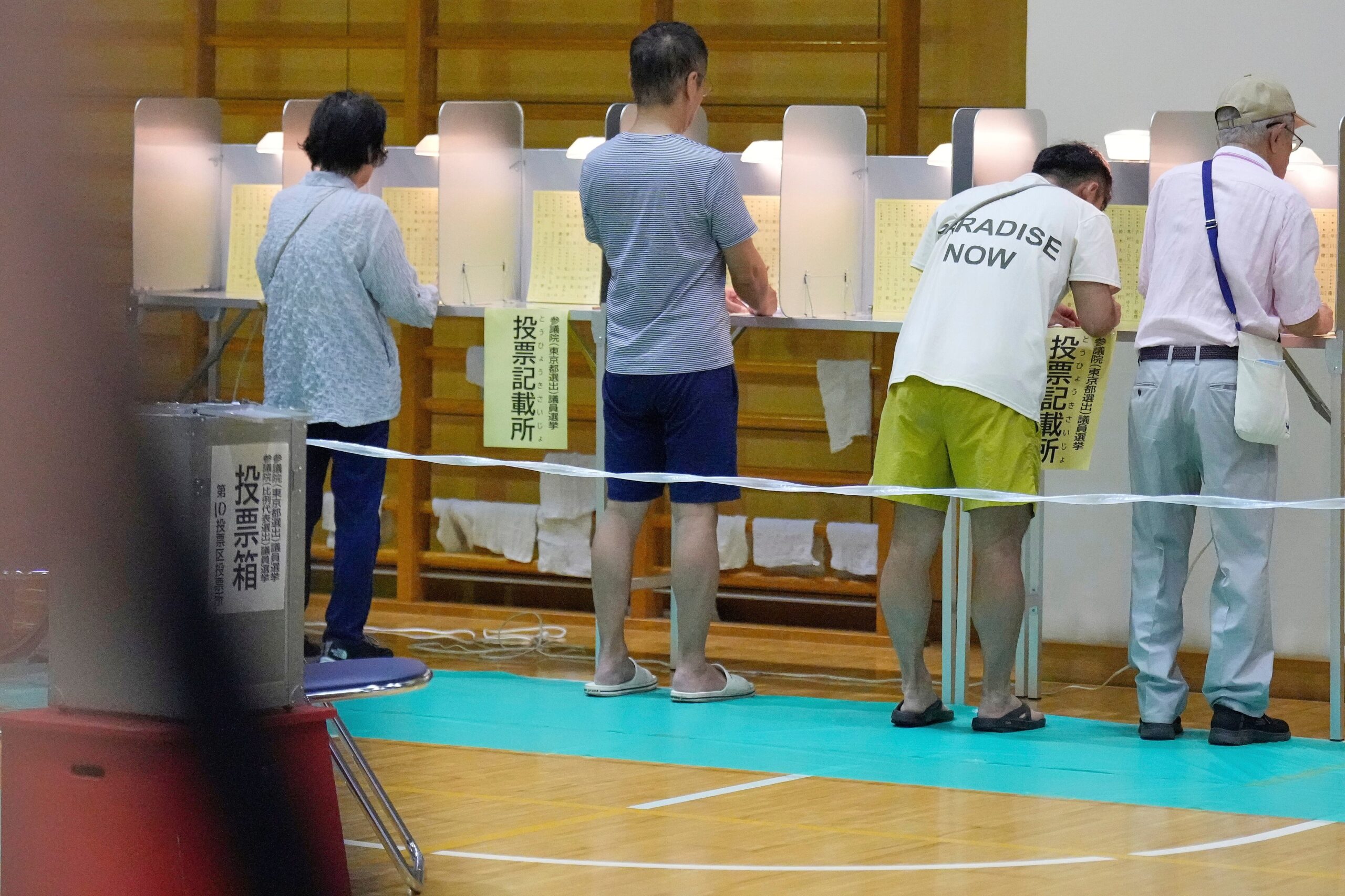Although he may receive calls from inside his party to resign or find a new coalition partner, Ishiba stated his will to remain in office in order to address issues like the prospect of U.S. tariffs.
He declared, “I will work for the country and fulfill my responsibility as head of the No. 1 party.”
Vote counts
Since Ishiba had set a low goal of a simple majority of 125 seats, his LDP and its junior coalition partner Komeito, who is backed by Buddhists, needed to win 50 seats in order to increase their current 75-seat total.
Results from exit polls that were made public just after the polls closed on Sunday night largely indicated that Ishiba’s coalition had suffered a significant defeat.
Ishiba vows to stay on
The LDP alone secured 38 seats, above the average of 32 predicted by exit polls, and remains the most powerful party in the Diet, the parliament.
It’s a difficult circumstance. In a live interview with NHK, Ishiba stated, “I take it humbly and sincerely.” He claimed that the low performance was due to the fact that many people had not yet benefited from his government’s efforts to stop price increases.
Because the upper house lacks the authority to launch a no-confidence vote against a leader, a poor election performance won’t instantly result in a change of government, but it will undoubtedly increase anxiety about his future and the political stability of Japan. There may be calls for Ishiba to resign or find an other coalition partner from inside the LDP party.
Economic worries
The main concerns of disgruntled, low-income voters are rising costs, stagnant salaries, and hefty social security benefits. With a burgeoning right-wing populist party spearheading the campaign, stricter regulations aimed at foreign tourists and residents also became a major concern.
Stung by previous corruption revelations, Ishiba’s coalition lost a majority in the October lower house election. Since then, his unpopular government has been forced to make concessions to the opposition in order to pass legislation through parliament. This Sunday’s vote follows that setback. It has not been able to swiftly implement efficient policies to counteract declining incomes and rising costs, notably those of rice, which is a traditional staple in Japan.
Trade talks with Washington
The pressure has been increased by U.S. President Donald Trump, who has lamented the lack of progress in trade talks, the decline in sales of American cars and rice to Japan despite a shortage of domestic supplies of the crop.Another setback for Ishiba has been a 25% tariff that is scheduled to go into effect on August 1.
Ishiba opposed any kind of compromise prior to the election, but since the minority government would find it impossible to reach an agreement with the opposition, the likelihood of a breakthrough following the election is equally uncertain.
Populism gains traction
Emerging populist parties were quickly gaining support from disgruntled citizens. However, the eight major opposition parties were too dispersed to present a unified front, create a similar program, and win over voters as a strong alternative.
With its Japanese First platform, which suggests a new agency to manage foreign policy, the new populist party Sanseito stands out for having the strongest anti-foreigner position. The party’s populist ideology also supports traditional gender values and is anti-globalization and anti-vaccine.
The Liberal Democrats have lost ground to conservative to centrist opposition parties including Sanseito, the DPP, and the main opposition Constitutional Democratic Party of Japan, or CDPJ. According to exit poll data, the DPP might quadruple from four seats to 17 seats, while the CDPJ could win up to 26 seats. It was anticipated that Sanseito will rise from one to sixteen.
Not a single opposition party expressed interest in working with the ruling coalition. Yoshihiko Noda, the leader of the CDPJ, told NHK that forming an alliance among the opposition is his top goal.
Human rights advocates and concerned foreign residents have protested the growth of xenophobic discourse during the election campaign and on social media.
Choice between stability or change
Japan’s political stability and societal conformity can be attributed to the LDP’s near-constant dominance in postwar politics.
Voters are split between change and stability, and some are worried about the rise in xenophobia.
A 43-year-old consultant named Yuko Tsuji said she and her husband support the LDP for stability and unity when they visited a polling place inside a gymnasium in downtown Tokyo. and supported candidates who would not sow discord.”
The conservative base will veer to the extremists if the ruling party does not govern effectively. According to her, I cast my ballot in the hopes that the ruling party would tighten regulations.
Self-employed 57-year-old Daiichi Nasu, who brought his dog to vote, expressed his optimism for a shift in society toward greater diversity and inclusivity, including more open immigration and gender-neutral regulations like permitting married couples to maintain distinct last names.
He explained, “That’s why I voted for the CDPJ.” Progress on those fronts is what I want to see.
___
This report was written by Reeno Hashimoto, a journalist with the Associated Press.
Thanks to AP
Thanks to AP
Thanks to AP
Thanks to AP
Thanks to AP
Thanks to AP
Thanks to AP
Thanks to AP






